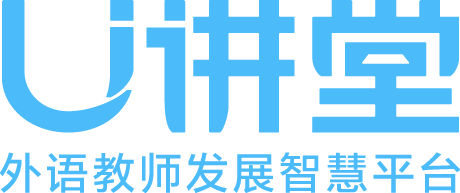

以“面向国际和职业交流的作为外语的英语及专门用途英语写作教学与研究”(Teaching and Researching EFL and ESP Writing for Global and Professional Communication)为主题的“第十届中国英语写作教学与研究国际研讨会”将于2016年9月23日-9月25日在太原理工大学召开。此次会议由太原理工大学外国语学院承办,外语教学与研究出版社、高等教育出版社协办。目前,国内外130多所高校200余位专家、学者提交了交流论文,知名专家学者云集。为了使大家更好地了解会议有关内容,做好参会准备,获得更大收获,我们将利用会议召开前的这段时间,陆续以“会议专题预告”的形式进行介绍。
在此次会议“大会报告”专题,将有Charlene Polio(美国Michigan State University,SSCI国际期刊Modern Language Journal 主编),Guillaume Gentil(加拿大Carleton University,SSCI国际期刊Journal of Second Language Writing主编),Lawrence Jun Zhang(新西兰 University of Auckland,SSCI国际期刊TESOL Quarterly栏目主编),Paul Thompson(英国University of Birmingham,SSCI国际期刊Journal of English for Academic Purposes主编),黄国文(华南农业大学教授、博士生导师、Functional Linguistics联合主编、Journal of World Languages联合主编、《中国外语》主编),文秋芳(北京外国语大学教授、博士生导师、《中国应用语言学》主编,《中国外语教育》主编)等多位著名专家围绕会议主题做精彩报告。本期向大家介绍文秋芳教授和她的报告内容。
文秋芳教授:“师生合作评价”—“产出导向法”创设的新评价形式

文秋芳教授
北京外国语大学学术委员会主任、教授、博士生导师,中国英汉语比较研究会副会长,中国英汉语比较研究会英语教学研究分会会长、System 、International Journal of Applied Linguistics 、Journal of English as a Lingua Franca 编委会委员、《中国应用语言学》主编、《中国外语教育》主编。主要研究领域为应用语言学,研究兴趣包括二语习得、教师教育、国家语言能力等,已发表论文 140 余篇,出版专编著20 余部,主持多项国家级研究项目。多次获得国家级教学成果奖及各类省部级教学或科研成果奖。文秋芳教授注重关心教学过程中学生与教师的共同发展,曾设计和组织不同类型的外语教师培训。
报告摘要
“产出导向法”始于产出,终结于产出,特别重视对学生产出结果给予有效评价。然而大学英语班级大、教师工作负担重,对每个产出任务给出及时、有效的评价对教师是极大的挑战。为了应对这一挑战,“产出导向法”提出了“师生合作评价”的新设想,以组织和平衡教师评价及自评和互评等其他方式。“师生合作评价”分为课前、课内和课后三个阶段。课前,教师根据单元的语言和交际教学目标选择并评阅典型样本。课内,学生先独立思考,再进行子/小组交流,然后在教师引领下,进行大班讨论,教师适时给出课前准备好的评阅意见。课后,在教师课内专业指导的基础上,学生再采用自评或同伴互评对“师生合作评价”加以补充。这种评价方法力图既促进学生语言能力的发展,又提高学生的写作能力。
关键词:外语教学;产出导向法;师生合作评价;形成性评价
Abstract:The Production-oriented Approach (POA) starts with production and ends with production, putting a premium on the effective assessment of students’ language production. However, assessing students’ performance on productive skills is challenging in China because large class sizes inevitably lead to heavy workloads for teachers. To deal with this dilemma, the POA proposes a new method of assessment—Teacher-student Collaborative Assessment (TSCA)—to organize and balance teachers’ and other types of assessments. TSCA involves three phases: pre-, in- and post-class. Before class, the teacher selects a few samples and critically reviews them based on the learning objectives including both linguistic and communicative ones). In class, students make critical comments on the selected samples independently first and then exchange their views in pairs/groups; students discuss their views together under the teacher’s guidance while the teacher may offer her/his revised version prepared in advance. After class, all students revise their products either through self-assessment or peer assessment once they have received the teacher’s guided training in class. This kind of assessment intends to promote the development of both students’ language competence and writing abilities.
Key words:foreign language teaching; the Production-oriented approach; Teacher-student Collaborative Assessment; formative assessment
本文是教育部人文社科基地重大项目子课题“产出导向法”理论体系与实施方法研究的阶段性成果。北京体育大学孙曙光副教授帮助收集了本文相关文献,并对本文的修改提出了宝贵意见,北京外国语大学博士后林琳也对文稿进行了仔细审校,在此一并表示感谢。
